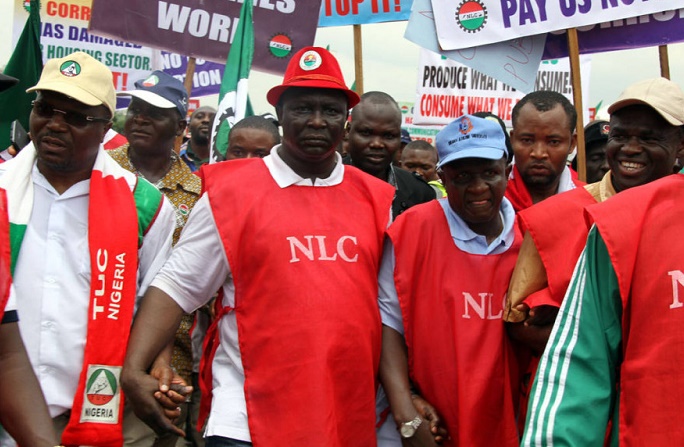Workers in Rivers State, under the umbrella of the Joint Negotiation Council (JNC), the Nigeria Labour Congress (NLC), and the Trade Union Congress (TUC), have strongly opposed the state of emergency imposed on the state by President Bola Tinubu.
Grassroots Parrot reports that the unions are demanding its immediate reversal, warning that failure to comply could lead to widespread industrial action that may cripple the state’s economy.
The workers’ position was made known in a joint statement signed by the chairpersons of the three labour groups in Rivers State—Chuku Emecheta (JNC), Alex Agwanwor (NLC), and Ikechukwu Onyefuru (TUC).
The statement, released on Tuesday, March 25, emphasized the unions’ firm stance against the emergency rule.
President Bola Tinubu had declared a state of emergency in Rivers State during a nationwide broadcast on Tuesday, March 18.
READ ALSO: Former President Jonathan Breaks Silence On Rivers Emergency Rule
As part of the declaration, he suspended Governor Siminalayi Fubara, his deputy Ngozi Odu, and all members of the State House of Assembly, although the state judiciary remained intact.
In justifying his decision, the president accused both Governor Fubara and his predecessor, the current Minister of the Federal Capital Territory (FCT), Nyesom Wike, of allowing the state’s deepening political crisis to spiral out of control.
He particularly blamed Governor Fubara for inaction following an attack on an oil facility in the state just a day before the emergency rule was imposed.
However, the organised labour unions have strongly condemned the federal government’s actions, describing them as unconstitutional and an outright violation of democratic principles.
They argued that the governor, his deputy, and the lawmakers were duly elected by the people of Rivers State, and any attempt to remove them outside the framework of constitutional procedures undermines the essence of democracy.
READ ALSO: Rivers Emergency Rule Could Reawaken Military Ambitions For Political Power, Says BUK Prof
Furthermore, the labour leaders decried the adverse economic impact of the state of emergency, particularly on civil servants and local government employees.
They claimed that many workers had been left without salaries, deepening economic hardship across the state.
The unions have vowed to resist any form of governance that disregards democratic values and have reiterated their commitment to taking industrial action if their demands for a reversal of the emergency rule are not met.

